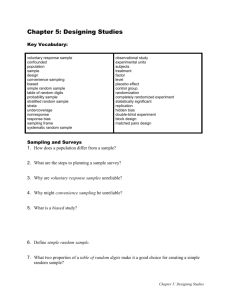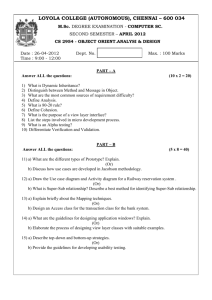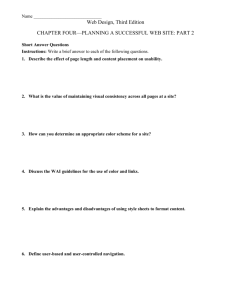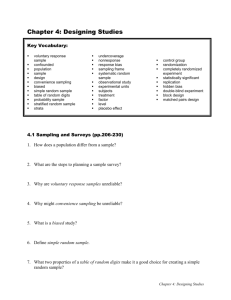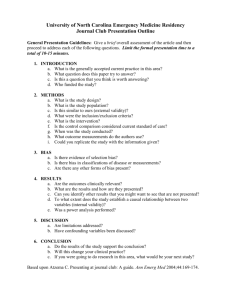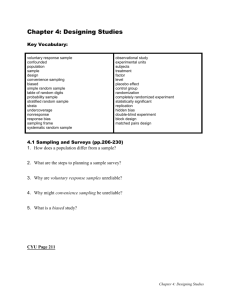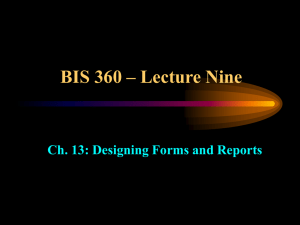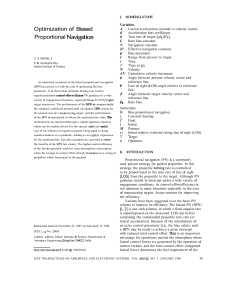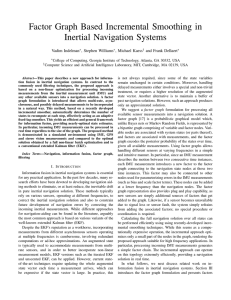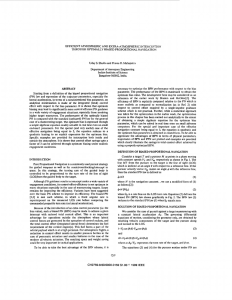Chapter 13 Designing Forms and Reports
advertisement
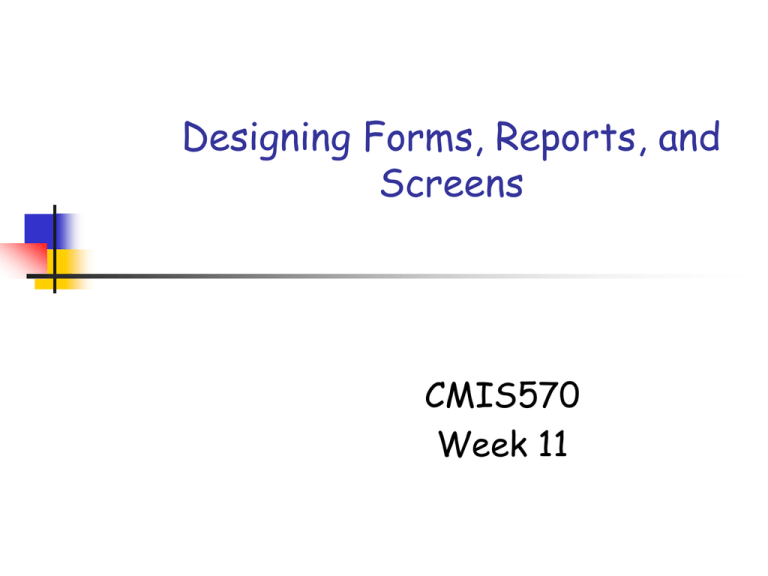
Designing Forms, Reports, and Screens CMIS570 Week 11 Introduction Human factors in designing HCI General design guidelines Users’ bias Design specifications SDLC Project Identification & Selection Project Initiation & Planning Analysis Logical Design *** Physical Design Implementation Maintenance We Are Designing for Humans Faulty nature of human knowledge and memory, so… 1. 2. 3. General Guidelines Categories Layout Text Color Highlighting Navigation Layout Guidelines 1. Create a unique site identity and strive for consistency 2. 3. 4. 5. 6. Fonts What is background, foreground Graphics size, color, shape 1 3 2 4 Text Guidelines Avoid large blocks of text; reading is 25% less efficient online Limit lines of text to 60 characters Left justify text to improve readability Avoid words in all upper case letters Clear and specific titles describing content and use No hyphens, abbreviations, or acronyms Revision date or date when data was generated Color Guidelines Only useful when information is most effectively displayed (cannot improve on garbage) Limit browser-safe colors to 3 or 4 complimentary colors Simplify background Can be soothing, provide interest, emphasize logical organization, and draw attention to warnings Can degrade resolution and fidelity with different display units and can be a problem for color blindness Highlighting Guidelines Includes blinking, audible tones, color differences, intensity differences, size differences, font differences, boxing, underlining, ALL CAPITAL LETTERS, offsetting positions, and reverse video Use sparingly to draw user to or away from certain information (errors, warnings, keywords, high priority messages, changed data, data outside normal ranges Use consistently Navigation Guidelines 1. Use consistent means of navigation with visual cues. 2. 3. 4. What Is Wrong With This? USE MIXED UPPER & LOWER CASE AND --(CONVENTIONAL PUNCTUATION) USE DOUBLE SPACING IF SPACE PERMITS LEFT-JUSTIFY TEXT AND LEAVE A RAGGED RIGHT MARGIN DO NOT HYPHENATE WORDS BETWEEN LINES UAAACOWU NO GRAPHIC EXPLANATION Information Bias How you format information influences how it is perceived by the user Bias includes providing 1. 2. 3. 4. Design Specifications for Forms, Reports, & Screens Narrative Overview Who will use it? What & when is the task performed? Sample Design Testing and usability assessment Can you complete the task efficiently? (time to learn, speed of performance, rate of errors, rate of retention) Is the form/report accurate? (expectations, confidence) Do you like using the form/report? (satisfaction) Guidelines to Design Maintain consistency and standards Allow shortcuts and accelerator keys Provide feedback to user actions Provide logical sequencing & closure Report all errors & suggest solutions Allow for reversals of actions Make the user feel in control Provide simplicity and ease of use Related Web Sites www.websitesthatsuck.com www.webreview.com www.useit.com www.killersites.com www.lynda.com
